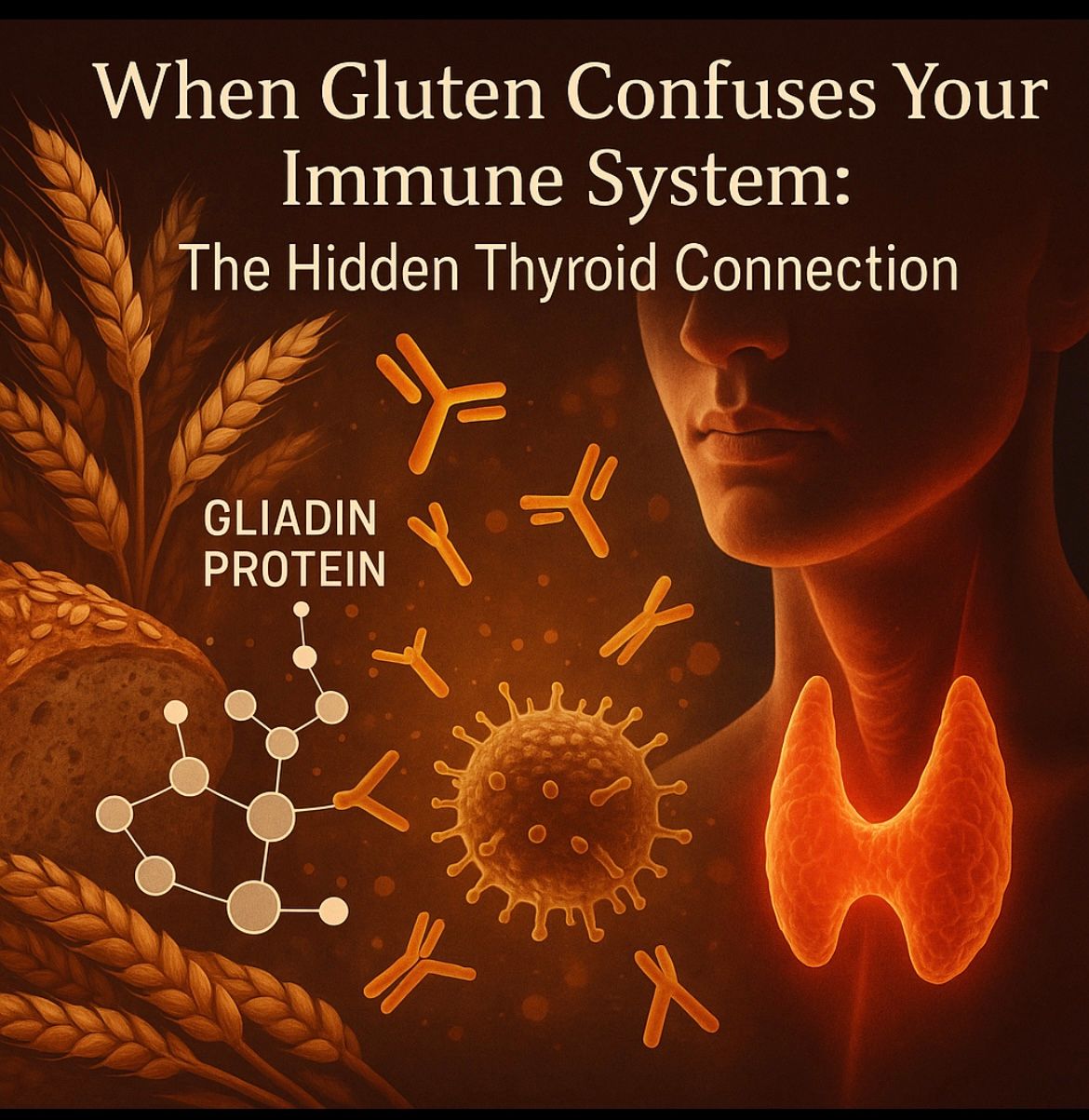When Gluten Confuses Your Immune System: The Hidden Thyroid Connection
Why Going Gluten-Free Can Be Life-Changing for People with Thyroid Issues
If you’ve ever wondered why your thyroid symptoms flare up after eating bread, pasta, or other wheat products, the answer could be hidden in your immune system’s “mistaken identity.” Gluten — a protein found in wheat, barley, and rye — contains a component called gliadin. In some people, gliadin’s structure is strikingly similar to the proteins found in your thyroid tissue.
Here’s where the problem begins. If your immune system already sees gluten as a threat, it produces antibodies to attack gliadin. But because gliadin and parts of the thyroid look so much alike under the immune system’s microscope, those same antibodies can end up attacking your thyroid too. This process is called molecular mimicry, and it’s one reason gluten can make autoimmune thyroid conditions like Hashimoto’s or Graves’ disease worse.
Why This Matters for Thyroid Health
- Cross-Reactivity: Once the immune system “tags” gliadin as an invader, it can target the thyroid as well.
- Ongoing Inflammation: Every time you consume gluten, it can reignite the immune response, keeping inflammation high.
- Slowed Healing: Chronic inflammation can prevent thyroid tissue from repairing and can worsen symptoms like fatigue, weight gain, brain fog, and hair loss.
Symptoms You Might Notice After Eating Gluten
- Worsening fatigue
- Mood swings or anxiety
- Bloating and digestive discomfort
- Swelling in the neck or feeling of tightness
- More frequent brain fog or memory issues
What Most People Get Wrong
Many think going gluten-free is only for people with celiac disease. But research shows that even those without celiac can have non-celiac gluten sensitivity that triggers autoimmune flare-ups, especially in the thyroid. It’s not always about digestive symptoms — sometimes the impact is entirely on the immune and endocrine systems.
What You Can Do Instead
- Try a gluten elimination trial for 30–60 days while monitoring your symptoms.
- Support gut health with nutrient-rich whole foods and targeted supplementation.
- Test for gluten sensitivity and autoimmune markers to guide your next steps.
If your immune system is attacking your thyroid because of gluten cross-reactivity, removing gluten could be one of the most important steps you take toward healing.
Gentle Call to Action:
If you’re dealing with thyroid issues and wondering whether gluten could be part of the problem, let’s uncover the root cause together. I work with clients across the U.S. to design personalized healing plans that address both the immune system and the thyroid.
Visit www.executivefunctionalhealing.com to learn more or schedule your consultation today.

